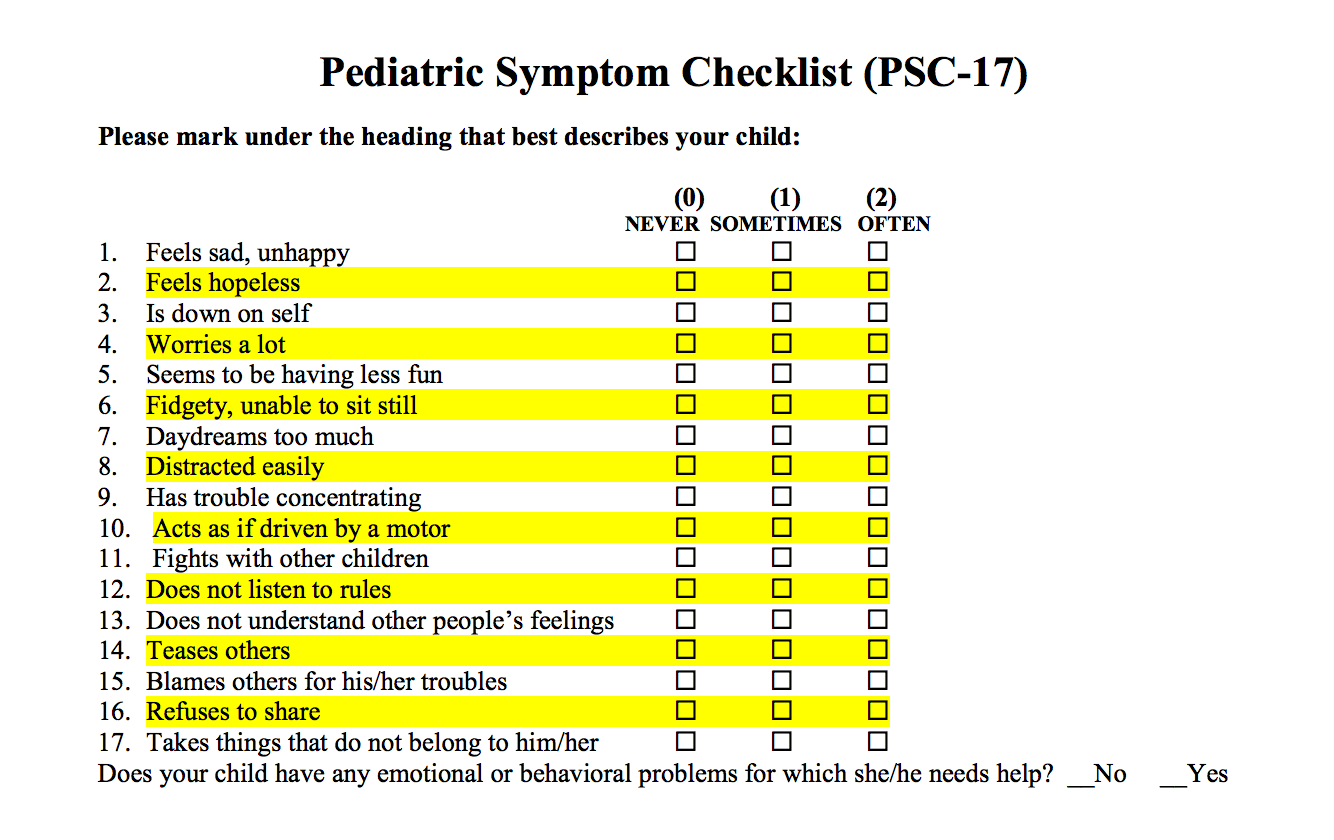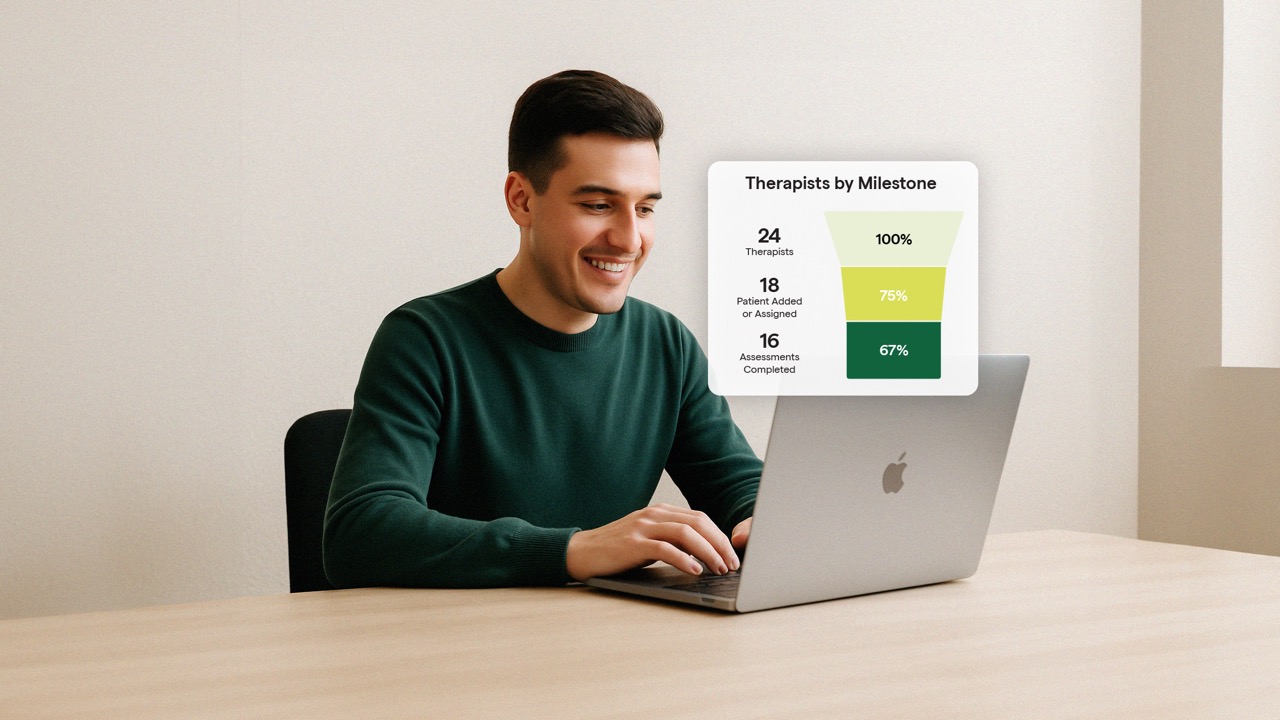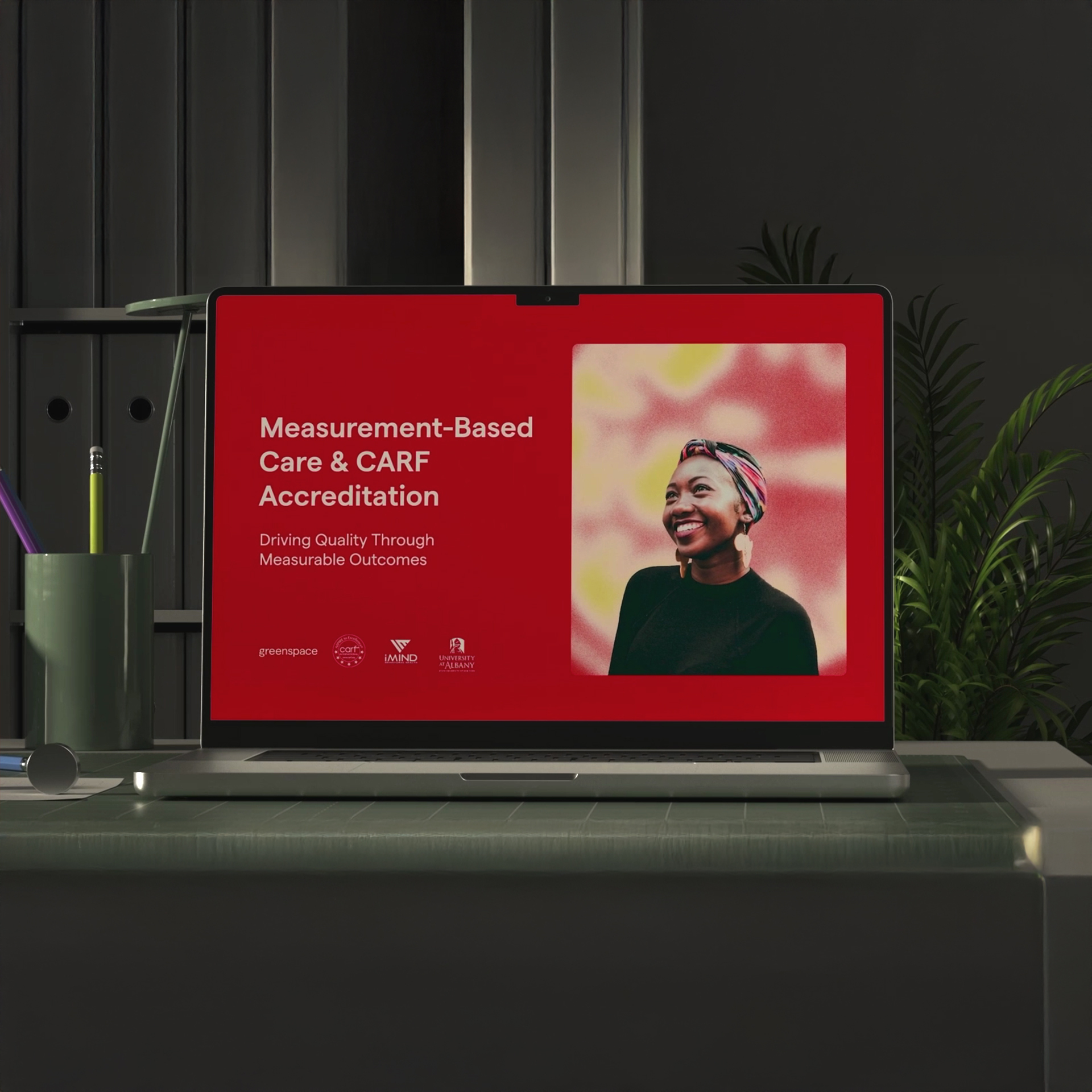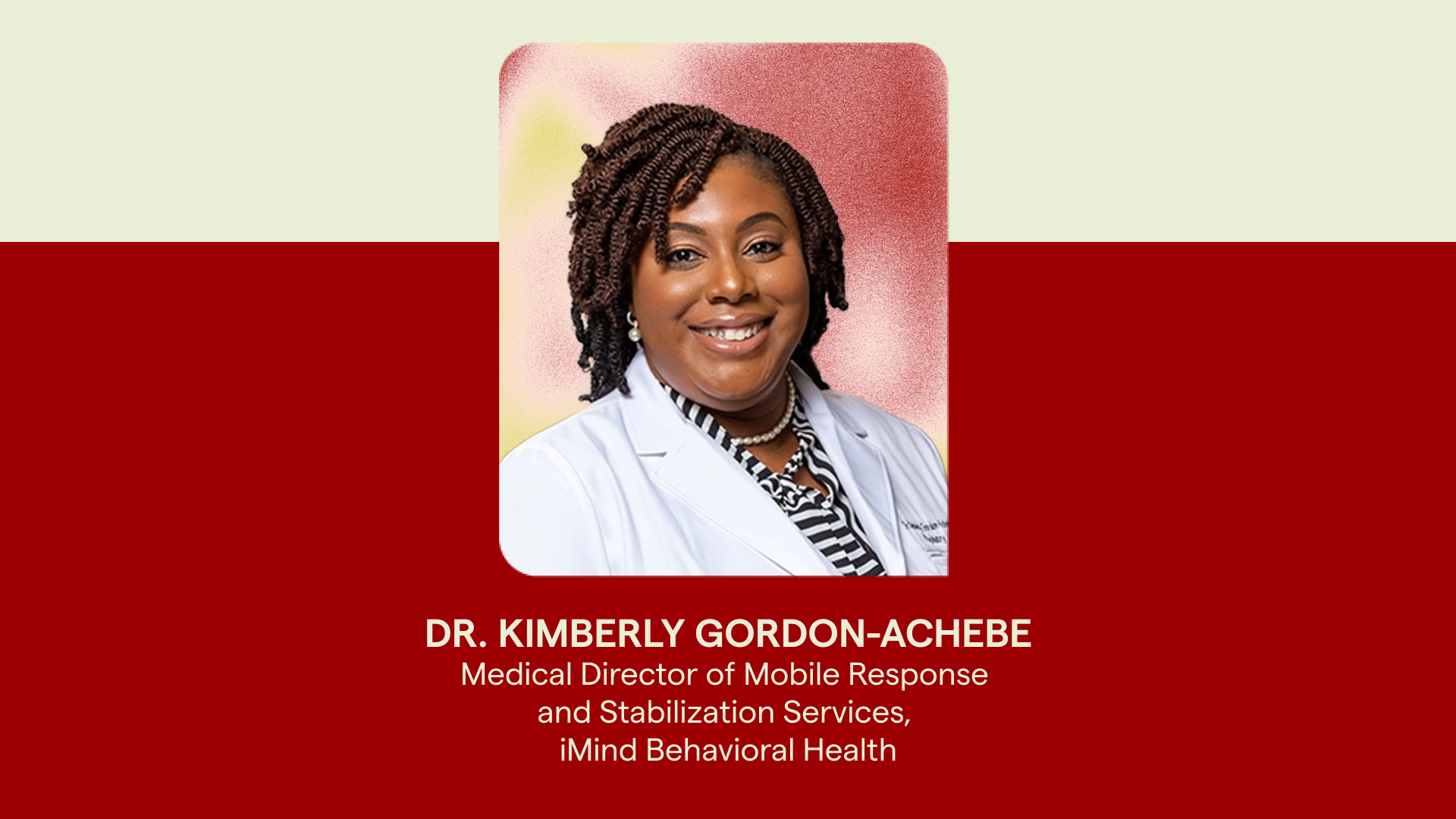Pediatric Symptom Checklist PSC-17
Recommended Frequency: 4 weeks
Summary
The Pediatric Symptom Checklist (PSC) is a brief questionnaire that helps identify and assess changes in emotional and behavioral problems in children. The PSC covers a broad range of emotional and behavioral problems and is meant to provide an assessment of psychosocial functioning. The scale can be used by the parents of children and adolescents between the ages of 4 and 17. If the client is 18 or older, they may use the self-report PHQ-9 scale.
Psychometric Properties of the PSC-17
Validity: 68% of the children identified as PSC positive will also be identified as impaired by an experienced clinician and, conversely, 95% of the children identified as PSC negative will be identified as unimpaired (Jellinek et al. 1988). Similarly high rates of validity have been reported for the PSC-Y and several of the PSC translations.
Reliability: Test/retest reliability of the PSC ranges from r = .84 – .91. Over time, case/not case classification ranges from 83%-87% and kappa = .84 (Jellinek et al. 1988; Murphy et al. 1992).
Inter-item Analysis: Our studies (Murphy & Jellinek 1988; Murphy et al. 1996) indicate strong internal consistency of the PSC items (Cronbach alpha = .91) and highly significant (p < 0.001) correlations between individual PSC items and positive PSC screening scores.
Sources:
1. https://www.ncbi.nlm.nih.gov/pmc/articles/PMC5005018/
2. https://www.massgeneral.org/psychiatry/treatments-and-services/pediatric-symptom-checklist/














